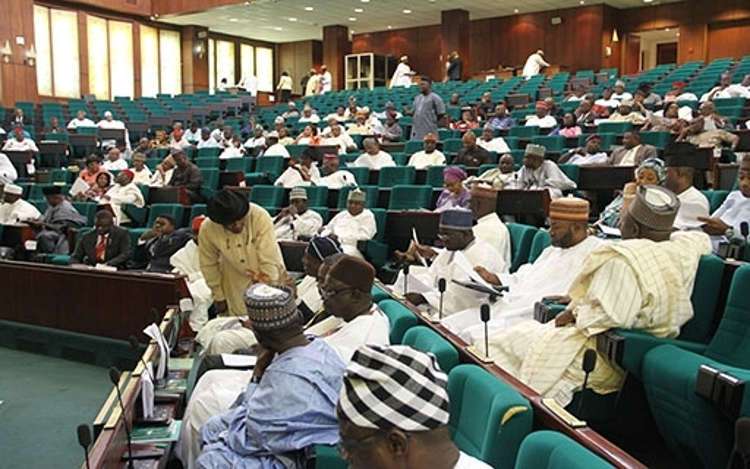Members of House of Representatives, Wednesday, sang discordant tunes following planned insertion of technological device into the Electoral Amendment bill.
Trouble started when Section 16 of the bill which had to do with the card reader was raised for consideration at the Committee of the Whole, chaired by the Deputy Speaker, Lasun Yussuff.
This development made some PDP lawmakers to stage a walk-out of the chamber to register their grievance.
As soon as the chairman of the Committee on Electoral and Political Party Matters, Aishatu Dukku, read the motion, presiding officer, Lasun informed his colleagues of the importance of the bill and demanded for their prompt attention.
It would be recalled that President Muhammadu Buhari had declined assent to the bill, pointing out some issues which necessitated the effort of the lawmakers to take another look at it.
The Clause indicates that the presiding officer shall use a smart card reader or any other technological device that may be prescribed by the commission for accreditation of voters, to verify, confirm or authenticate particulars of the voter in the manner prescribed by the commission.
Gabriel-Africa Onyenweife from Anambra, Dan Asuquo from Cross River State and Ossai Nicholas Ossai from Delta State were among the contributors who kicked against the inclusion of the clause, especially the aspect which says ‘any other technological device that may be prescribed by the commission’, saying it will give the electoral body the room to change the process when it suited it.
But Leader of the House,. Femi Gbajabiamila, advised that the clause was necessary because it will leave the electoral body the opportunity to introduce any other technological device to conduct elections without recourse to the National Assembly for another amendment.
The clause also says where the card reader fails to function, the presiding officer is expected to replace it within three hours to the end of voting. Where that is not possible, the electoral body will conduct a fresh election within 24 hours.
Also Clause 17 says that where nomination of an elected candidate is nullified by the court and a notice of appeal against the decision is given within the stipulated period for appeal, the elected candidate shall ,not withstanding the contrary decision of the court, remain in office, pending the determination of the the appeal.
Going by the new law, it is now an offence for any political party to present an unqualified candidate to the commission and where that happens, the erring party shall pay a fine of N5 million.
Clause 18 further stipulated that the Commission shall use electronic voting in all elections or any other method of voting as may be determined by the Commission from time to time.
After the Deputy Speaker who presided over the session put the matter to a voice vote and ruled in favour of the amendment, some Peoples Democratic Party, PDP members who opposed it left the chambers immediately.

